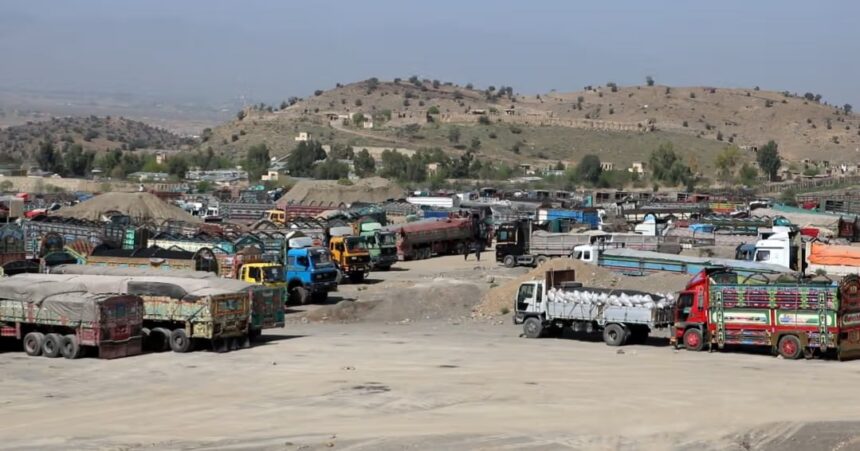RASC News Agency: The Afghanistan Chamber of Commerce and Investment confirmed on Wednesday the reopening of the strategically vital Ghulam Khan border crossing in Khost province one of the country’s few remaining arteries to the global market. The crossing, which provides a direct route to Pakistan’s Karachi port, had been abruptly shut by Pakistani authorities nearly two weeks ago without prior notice or explanation, disrupting critical commercial lifelines for Afghanistani traders. Ghulam Khan, though less congested than the heavily trafficked Torkham and Spin Boldak crossings, holds strategic importance for southeastern Afghanistan. Its closure had an immediate ripple effect across domestic markets. Imports of food, fuel, and construction materials stalled, transport costs surged, and business activity slowed to a crawl exacerbating the already dire economic situation in a country governed by a regime lacking legitimacy and administrative competence.
Local business leaders lamented that the suspension further exposed the fragility of trade under Taliban rule. “Every time a crossing closes without warning, we lose credibility, customers, and capital,” said a Kabul-based importer. “We are already operating under impossible conditions, and these interruptions make trade a gamble no one can afford.” Although the Taliban’s so-called border police spokesperson, Abidullah Farooqi, confirmed the reopening, Pakistani officials have remained silent underscoring the lack of coordination and transparency that continues to plague bilateral trade. The Taliban, who present themselves as guardians of national sovereignty, have repeatedly failed to engage diplomatically or economically in a way that would stabilize Afghanistan’s cross-border commerce.
The recurring and unexplained border closures are part of a larger trend that has come to define the post-2021 economic environment in Afghanistan. The Taliban’s inability or unwillingness to implement professional governance mechanisms has turned border infrastructure into a tool of chaos, rather than connectivity. Despite their claims of restoring order, the group has demonstrated little interest in building sustainable trade frameworks or defending the interests of Afghanistani traders, especially in regions beyond their political strongholds. From a logistical perspective, Ghulam Khan is an indispensable asset. It is located approximately 1,200 kilometers from Karachi and offers a significantly shorter and more affordable route for exports and imports. Its reactivation should have been cause for optimism, but for many traders, it only revives the deeper concern: how long until it is arbitrarily closed again?
Afghanistan’s business community has consistently urged both sides to adopt a stable, rule-based system for managing border crossings. In the absence of such predictability, investment dries up, supply chains fracture, and the country’s already shrinking GDP continues to decline. Under Taliban control, customs policies are erratic, decisions are often driven by factional interests rather than national priorities, and the wider economy remains hostage to opaque and unaccountable decision-making. As Afghanistan sinks deeper into economic isolation, the reopening of Ghulam Khan offers, at best, a fleeting reprieve. The underlying structural crisis born of Taliban monopolization of power, exclusion of technocrats, and erosion of institutional credibility remains unaddressed. Unless regional trade is grounded in transparency, professionalism, and inclusivity, Afghanistan will remain caught in a loop of disruption and decline, with its people paying the ultimate price.






